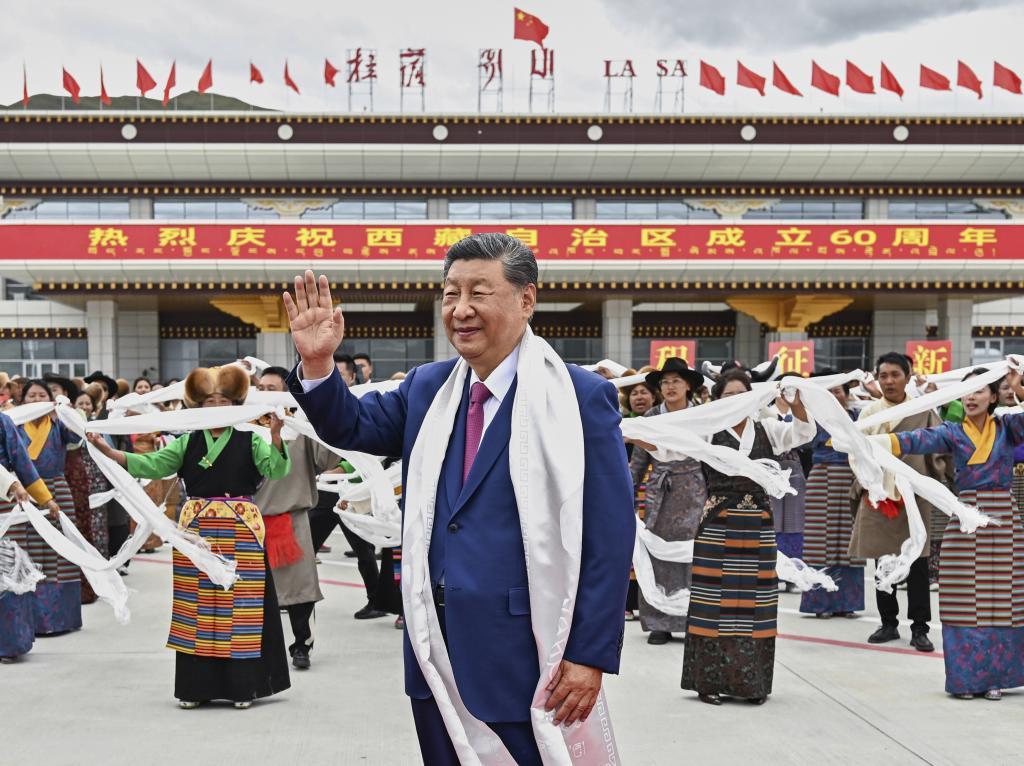In 1965, six years after the Dalai Lama fled into exile in India following a failed Tibetan uprising, Mao Zedong's ruling Communist Party established the Autonomous Region of Tibet, the fifth province of the Asian giant to reach this status after Inner Mongolia, Xinjiang, Guangxi, and Ningxia. Beijing argued that, thanks to this designation, it would guarantee religious freedom and that local ethnic minorities would have greater influence over politics, with the central government playing a secondary supervisory role.
However, for decades, human rights organizations and Tibetans in exile have exposed a very different reality: increased oppression and forced sinicization on the former Buddhist monarchy of Tibet, a place now referred to by Chinese officials as Xizang, the romanization of the name in Mandarin. Critics denounce, for example, that Chinese authorities send children to state boarding schools to erase their Tibetan identity and mitigate any future generation of opposition to Xi Jinping's government.
It seems that the images that once drew international attention to the situation in Tibet, such as a wave of self-immolations by Buddhist monks, have faded into the past, especially after China opened its doors to the outside world following the Beijing Olympics in 2008. The Chinese government boasts of stability thanks to the visible improvement in living standards and the success of policies to eradicate extreme poverty. To showcase this development to the world, the propaganda departments invite groups of international journalists to visit Lhasa, the capital of Tibet, every year. No journalist can enter the region independently without government permission.
On Thursday, Lhasa was the epicenter of the celebrations for the 60th anniversary of the autonomous region. The commemorative events were attended by 20,000 military personnel, students, and officials, including a large part of the top leadership of the Chinese Communist Party (CCP), starting with the supreme leader, Xi Jinping, who became the first president to participate in these activities held once every 10 years.
"To govern and develop Tibet, the first thing to do is to ensure political and social stability, as well as ethnic unity and that religious people are in harmony with society," Xi said in a quote reported by state media after being welcomed on Wednesday in Lhasa by dozens of Tibetans waving Chinese national flags. "Xi praised the local government for undertaking a comprehensive struggle against separatism," another note published by the Xinhua agency states.
During Thursday's event, the one to deliver a speech was the president of the country's main political advisory body, Wang Huning, who emphasized that Tibet, under the "guidance and comprehensive plan" of President Xi, has entered into "its best period of development." Wang noted that the region has achieved "historic progress" in poverty reduction, social development, and ethnic unity. "This fully demonstrates the strong leadership of the Chinese Communist Party and highlights the important political advantages of our socialist system," he emphasized.
President Xi met with local officials and prominent religious figures such as the Panchen Lama, the second-highest figure in Tibetan Buddhism after the Dalai Lama, who turned 90 last month and announced his succession plan.
Tenzin Gyatso, the Dalai Lama, revealed that a non-profit organization he founded, the Gaden Phodrang Trust, will have the sole authority to recognize his future reincarnation, rejecting any role for China in the selection process, where they argue that the spiritual leader has no right to represent the Tibetan people.
When Gyatso passes away, members of this organization, advised by various high-ranking figures in Tibetan Buddhism, the senior lamas, must initiate the search for a successor baby (outside of China this time, as insisted by the spiritual leader) and recognize them according to tradition, through rituals and signs.
Following the announcement, many authoritative voices in China began to suggest that it will be the ruling CCP who will oversee the selection of their own Dalai Lama using the "golden urn" lottery system, introduced during the Qing dynasty in the 18th century to select reincarnations by drawing names from a golden receptacle located in Beijing. "Tibetan Buddhism must adapt to socialism and Chinese conditions," Xi Jinping has stated on more than one occasion. In Beijing, the Dalai Lama is considered a dangerous separatist who incited major disturbances in the 1980s and in 2008.
In the days leading up to the anniversary, Chinese spokespersons have promoted the "spectacular economic achievements" of Tibet, explaining that it maintains an average annual growth rate of 8.6%, that the GDP is 154 times higher than in 1965, and that the average life expectancy has increased from 35 to 72 years over these decades. Additionally, 5G networks now cover all major counties and municipalities in a region that also holds strategic importance due to its natural resources, especially hydroelectric potential, and the disputed Himalayan border with India.
